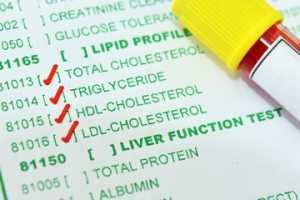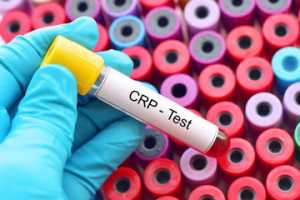Ten Important Blood Tests Every Adult Need To Take Annually
Regular blood tests are imperative to determine your overall health status and can identify the early warning signs of any disease.
With the results handy, your doctors can get an idea of the exact cause of the symptoms and diagnose conditions and find the right treatment before they become something worse.
From cancer, cardiovascular disease, diabetes to other chronic diseases, blood tests help identify the underlying cause of disease even if you’ve never experienced any symptoms.
Taking regular blood tests help you stay on top of your health, even if you’re healthy, by improving your standard of health. It gives you an idea of how you can optimise your cognitive function, mood and energy levels. So irrespective of how fit you are, it’s essential to take blood tests every year.
Here are 10 essential blood tests that you should take at regular intervals, having advantages that go far beyond the prevention of various health conditions.

Complete Blood Count(CBC)
A complete blood count is a combination of blood tests with which your doctor can evaluate your overall health and identify leukaemia, inflammation, infection, anaemia and certain other conditions. This low-cost panel measures the concentration, quality, quantity, percentage and type of the following components:
- Red blood cells
- White blood cells
- Platelets
Higher than normal level of these components, as indicated in the results can be a sign of:
- Cancer
- Cardiovascular disease
- Bone marrow problems
- Tissue inflammation
- Iron or vitamin deficiency
- Infections
Lipid Panel

Lipid panel is a set of blood tests to check the level of cholesterol and triglycerides in your blood. The test helps determine your risk for heart disease. Both LDL and HDL are measured, besides triglycerides. HDL cholesterol or High-density lipoprotein cholesterol is good cholesterol, and you’re at low risk of developing heart disease if your HDL level is high, since it prevents the accumulation of bad cholesterol or LDL in your artery walls.
But LDL builds up on artery walls, which causes heart attacks and strokes. In the case of triglycerides, you’re more susceptible to heart disease if you have a high level of this lipid in your blood.
Ideally, the level of good cholesterol must remain high, whereas the triglycerides and bad cholesterol levels should be low. Doctors normally order a more comprehensive lipid panel testing, for those who are more susceptible to developing heart diseases.
DHEA Sulfate
Adrenal glands, small glands located at the top of each kidney, produce a hormone called Dehydroepiandrosterone. This hormone in turn produces other hormones such as testosterone and estrogen. Even though the level of these hormones are at its peak when you’re in your 20s, yet as you age, the level goes down to about 20 to 30% when you’re in your 70s or 80s.
Conditions such as adrenal cancer or abnormal genital development can cause more than normal levels of DHEA sulfate. Polycystic ovary syndrome is a medical condition that affects women with abnormal DHEA, who is also susceptible to the following conditions:
- Endometrial cancer
- Infertility
- Depression
- Sleep apnea (Abnormal breathing when you’re asleep)
- Diabetes
- Obesity
On the other hand, High levels of this hormone in women may result from Type 2 diabetes and AIDS in men. These are some of the reasons why men and women should take a DHEA sulfate test.
C-Reactive Protein(CRP)

C-reactive protein test checks the amount of C-reactive protein, which is a protein produced by our liver. The level of this protein increases when there is inflammation somewhere in the body. Even though inflammation is a mechanism of protecting your tissues because of an infection or an injury, it can also result from chronic diseases and autoimmune diseases.
There is only a low amount of this protein in your blood. However, high CRP levels can be a sign of a disease, chronic stress or an infection. The level of this protein is abnormal in people who have high blood pressure, diabetes, high-stress levels and periodontal disease( an infection that affects tissues and bone around your teeth). The levels are also high in those who don’t exercise and also in smokers.
You’re more susceptible to developing cardiovascular disease if you have high levels of C-reactive protein and cholesterol.
Thyroid Stimulating Hormone(TSH)
Our thyroid gland produces thyroid hormones which control our body’s growth and metabolism. Whereas pituitary gland, a pea-shaped gland located behind your nose regulates the secretion of thyroid hormones inside your thyroid gland.
High TSH level points to Hypothyroidism, whereas low TSH levels hint Hyperthyroidism. This can disrupt your energy levels, weight and mood.
Estradiol

Estradiol is a type of female sex hormone which is normally found in both men and women.
For normal physiological functions, both men and women require an optimum amount of this hormone in their blood. Even though the levels of estradiol are used to check sexual maturity and menopausal status, high estradiol levels may indicate breast cancer or endometrial cancer. A lower level of this hormone is a sign of the risk of developing osteoporosis and bone fracture, in both men and women. So it’s essential both men and women should regularly take estradiol tests.
Hemoglobin A1c
One of the best ways to estimate glucose status, this test predicts the risk of developing heart diseases in those who don’t have or have diabetes. The test checks your blood sugar control over the past 3 months. Even if you’re healthy, you should take a Hemoglobin A1c test at least once every year. Those who’re having diabetes usually take the test up to 4 times per year. High HbA1c levels can help identify whether you’re at risk of developing diabetes or not.
This test can also help determine the susceptibility to heart disease regardless of whether you’re predisposed to heart disease. Therefore it’s essential that you should take this test to make sure that your Hemoglobin A1c is within an optimum range.
Fibrinogen Activity
Our liver produces a blood plasma protein called Fibrinogen, which is a major contributor to normal blood clotting. The level of Fibrinogen shoots up, as a response to tissue inflammation. Since both heart disease and atherosclerosis are inflammatory processes, an increase in Fibrinogen can help determine the risk of getting affected with certain conditions such as:
- Rheumatoid arthritis
- Heart disease
- Glomerulonephritis
- Stroke
Testosterone (Free)

Testosterone is a primary sex hormone found in men and women, which regulates sexual development, bone mass, muscle mass and more. As a person ages, reduced levels of this hormone can significantly impact health.
Only less than 2% of this hormone is usually found in free(unattached) form and this is known as free testosterone. The testosterone test is often used to determine if there’s adequate testosterone to protect the body against conditions such as:
- Depression
- Cardiovascular disease
- Abdominal obesity
- Diabetes
High level of this hormone is linked to a condition in women known as hirsutism( growth of hair in face and chest). Whereas low testosterone(free) levels can affect your overall wellbeing and may cause decreased libido.
Homocysteine
During the metabolism of methionine, which is an amino acid, our body produces another amino acid known as Homocysteine. There are many reasons why it’s essential to determine the level of this amino acid. Primarily, high homocysteine levels indicate a deficiency of Folic acid, Vitamin B-6 and vitamin B-12. Secondly, a high level of this hormone increases susceptibility to conditions such as
- Heart attack
- Dementia
- Osteoporosis
- Stroke
- Depression
- Insulin resistance
- Cognitive dysfunction
Abnormal homocysteine levels are linked to more than threefold rise of the risk of a heart attack in a period of 5 years. This is the reason why it’s essential to check the level of Homocysteine every year as advised by your doctor.